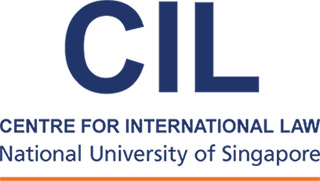
E-training on Law of the Sea and Climate Change
The Centre for International Law (CIL) at the National University of Singapore conducted e-training on the law of the sea and climate change.
The objective of the course was to provide participants with a background on the challenges of climate change on the oceans and how they can be mitigated or addressed. Sixteen delegates, from nine countries in South Asia, Southeast Asia and the Pacific Islands and working in government agencies across foreign affairs, environment and the ocean took part in the course.
Leading international experts and academics discussed various topics relating to the law of the sea and climate change. A workshop on national measures for climate change mitigation and adaptation was also held.
Find out more here.

CIL E-training: Law of the Sea and Climate Change
International Tribunal for the Law of the Sea Advisory Opinion
A first for an international court/tribunal, the International Tribunal for the Law of the Sea (ITLOS) issued an advisory opinion (AO) on states’ obligations to protect and preserve the world’s oceans from climate change.
ITLOS found that greenhouse gas emissions absorbed by the oceans constitute marine pollution and states are consequently required to take “all necessary measures” in line with best available science to fully reduce their emissions in line with the United Nations Convention on the Law of the Sea and other relevant international legal obligations.
Our expert panelists shared their insights on key aspects of the AO, and the implications and significance for states, corporations and civil society.
Find out more here.
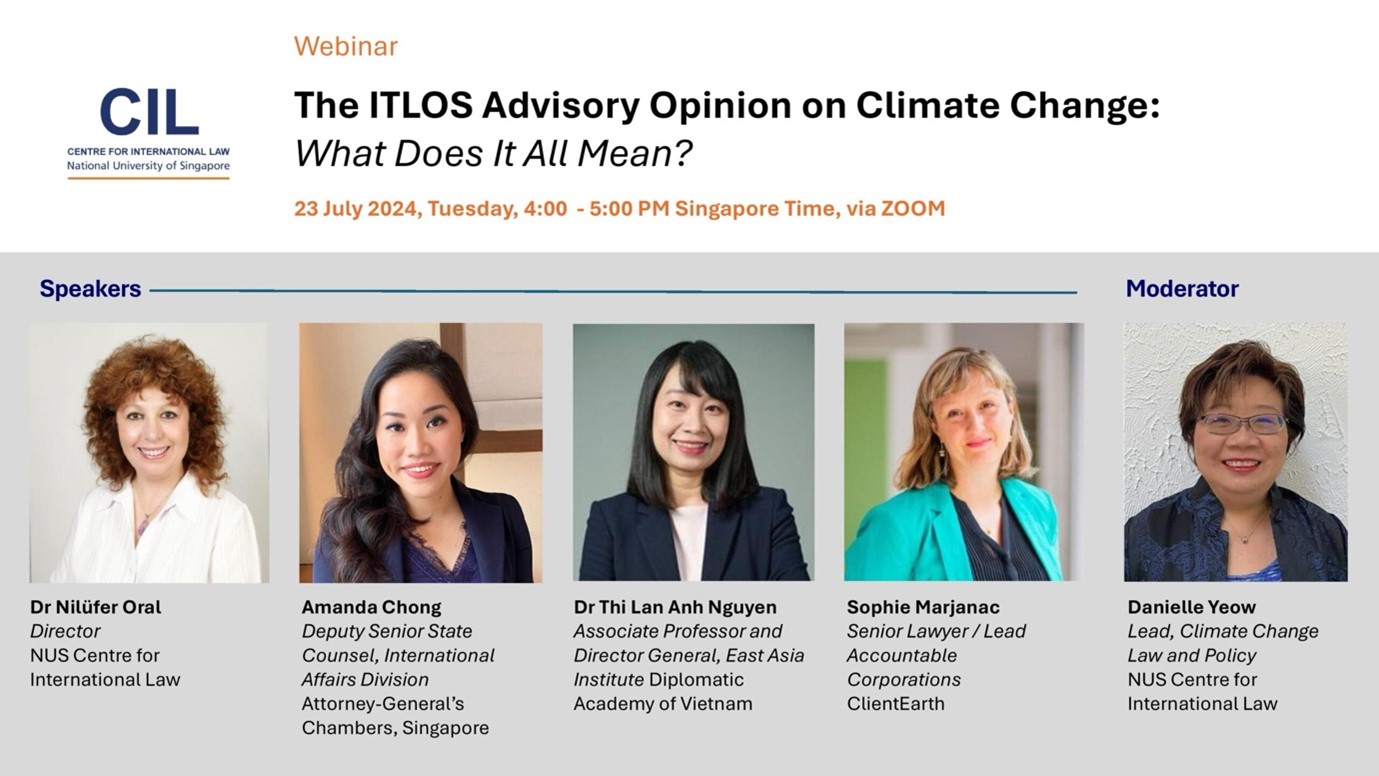
The ITLOS AO on Climate Change: What Does It All Mean?
Maritime Decarbonisation Project
Under the National University of Singapore, the Centre for International Law's (CIL) maritime decarbonisation project includes a blog on how the International Maritime Organisation (IMO) regulates shipping emissions and the importance of alternative zero- or low-emission fuels.
An article outlined the physical characteristics of alternative fuels and the impact of methanol and ammonia fuels on safety and marine environment, offering policy recommendations on revising the greenhouse gas strategy, environmental impact assessments, promoting fuel uptake and harmonising standards.
On 12 and 13 February 2025, CIL is organising a conference with the Centre for Climate Change Law and Governance at the University of Copenhagen to examine how greater legal certainty around the regulatory regime applicable to alternative fuels can be promoted.
Find out more here.
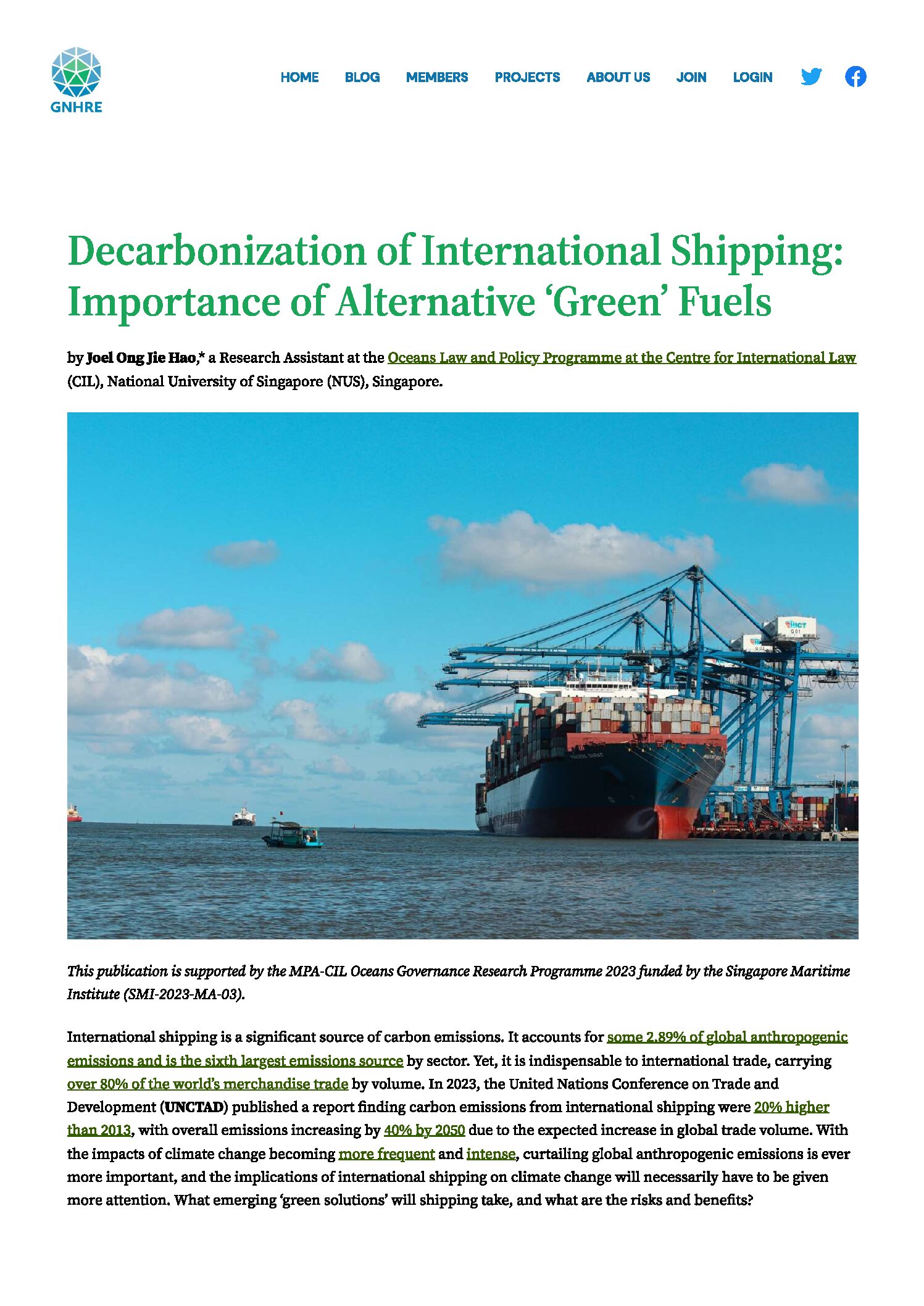
Decarbonising International Shipping: Importance of Alternative "Green Fuels"
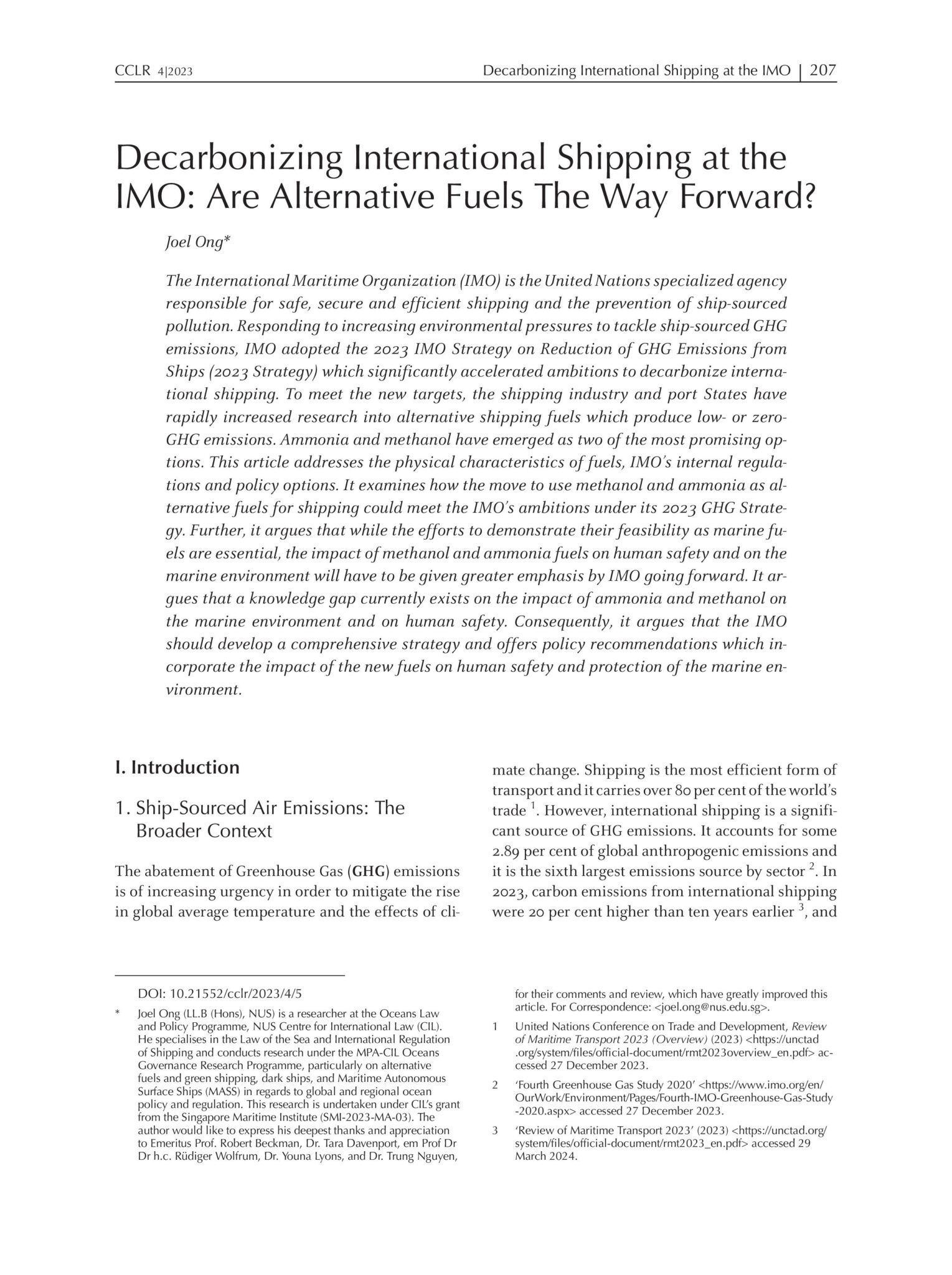
Decarbonising International Shipping at the IMO: Are Alternative Fuels the Way Forward?
Offshore Carbon Capture and Sequestration: Prospects and Challenges
The Centre for International Law at the National University of Singapore and Innovation Norway co-organised a webinar to explore the prospects and challenges in the development of offshore carbon capture and sequestration (CCS) in Southeast Asia and beyond.
The webinar provided an overview of offshore CCS, including an introduction to the climate change legal and policy context in which CCS is being pushed globally, a presentation of on-going development projects and the international legal framework applicable to offshore CCS.
The webinar discussed the drivers of current developments as well as the challenges and risks, including environmental risks, social barriers and technical constraints and legal repercussions.
Find out more here.
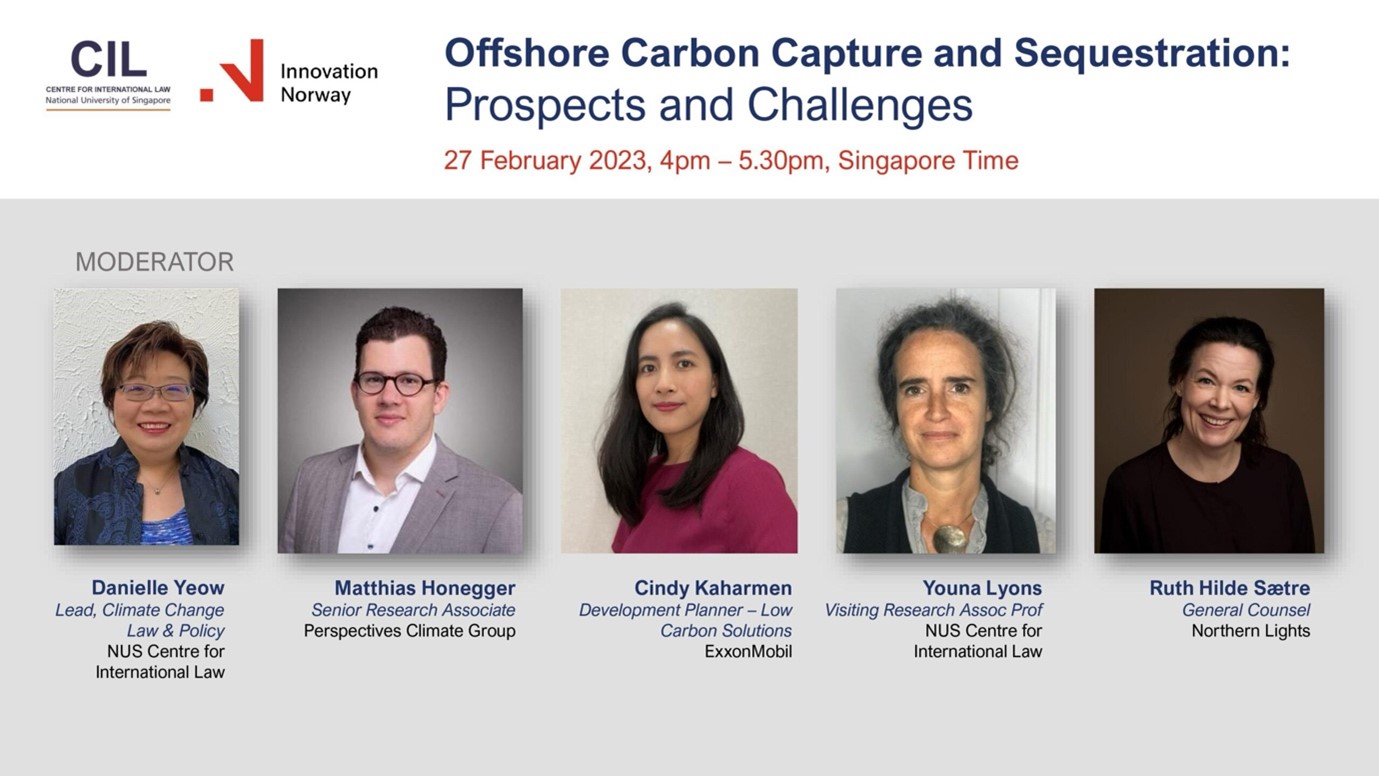
Offshore Carbon Capture and Sequestration: Prospects and Challenges
Sea Level Rise and the Work of the International Law Commission: Recent Developments
Co-chairs of the International Law Commission Study Group on sea level rise in relation to international law Dr Bogdan Aurescu (Professor, Faculty of Law, University of Bucharest) and Dr Nilufer Oral (Director, Centre for International Law, National University of Singapore) shared key points from their latest report and discussed issues related to the law of the sea.
Professor Tommy Koh (Chairman, International Advisory Panel, Centre for International Law, National University of Singapore) moderated the discussion.
Find out more here.
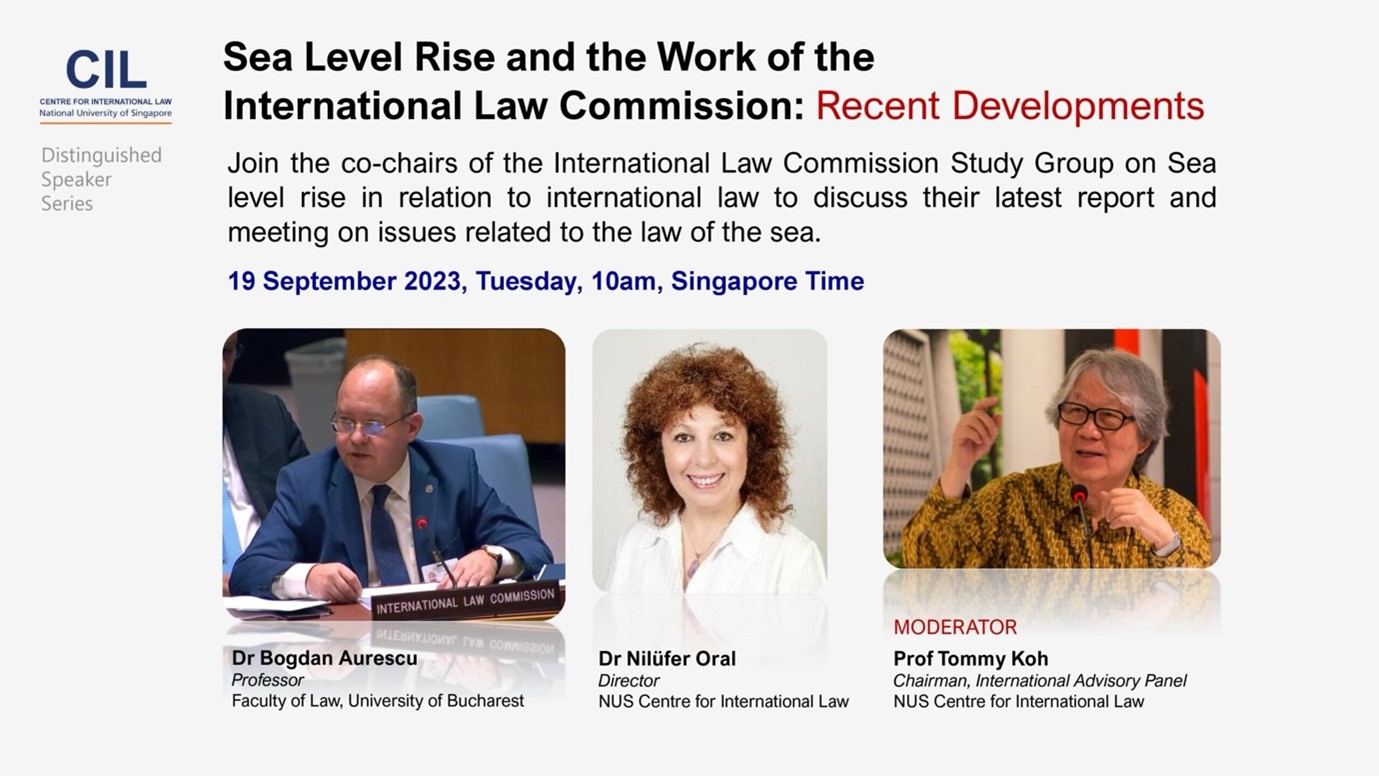
Sea Level Rise and the Work of the International Law Commission: Recent Developments